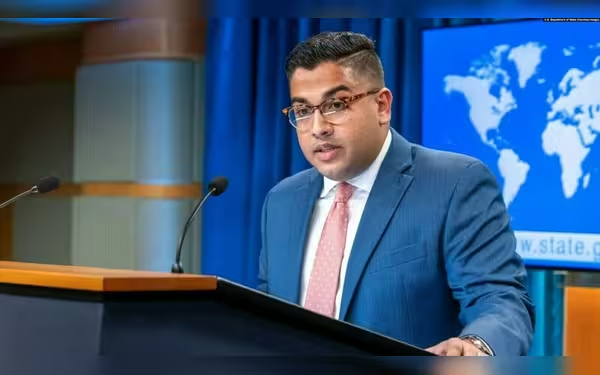Saturday, November 16, 2024 05:46 PM
US Dismisses Genocide Claims Against Israel in Gaza Conflict
- US rejects genocide accusations against Israel's actions.
- State Department emphasizes support for Israel's military operations.
- Humanitarian concerns raised amid ongoing Gaza conflict.
 Image Credits: brecorder
Image Credits: brecorderThe US rejects genocide claims against Israel, emphasizing support while addressing humanitarian concerns in the Gaza conflict.
In recent developments, the United States has firmly rejected accusations labeling Israel's actions in Gaza as "genocide". This statement comes in response to a report from a United Nations committee that claimed Israeli warfare methods were aligned with such severe allegations. The ongoing conflict in Gaza has raised numerous concerns globally, particularly regarding the humanitarian impact on civilians caught in the crossfire.
On Thursday, State Department spokesman Vedant Patel articulated the U.S. government's stance, stating, "We think that that kind of phrasing and those kind of accusations are certainly unfounded." This assertion reflects the U.S. administration's commitment to supporting Israel while navigating the complex landscape of international human rights discussions. The UN Special Committee's report specifically accused Israel of employing starvation as a tactic of war, a claim that Patel described as something the U.S. would "unequivocally disagree with."
Furthermore, Patel addressed a separate allegation from Human Rights Watch, which accused Israel of forcibly displacing Gazans over the course of the conflict, labeling it as "crimes against humanity." He emphasized that forced displacement of Palestinians would be a "red line" for the United States, indicating a clear boundary that the U.S. does not wish to cross in its foreign policy. Patel reiterated that the principles laid out by Secretary of State Antony Blinken and the Group of Seven allies must be upheld.
In his remarks, Patel clarified that it is acceptable for military operations to necessitate civilian evacuations, stating, "It is wholly consistent and acceptable to ask civilians to evacuate a certain area while they are conducting certain military operations, and then for them to be able to go home." This perspective highlights the delicate balance the U.S. seeks to maintain between military strategy and humanitarian considerations.
As the situation in Gaza continues to evolve, the international community remains watchful. The rejection of the "genocide" label by the U.S. underscores the complexities of international relations and the challenges of addressing human rights concerns amid ongoing conflict. It is crucial for all parties involved to prioritize the safety and well-being of civilians, ensuring that humanitarian principles are not overshadowed by military objectives. The world watches closely, hoping for a resolution that respects human dignity and fosters lasting peace.













